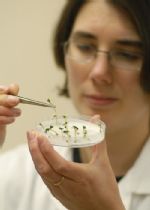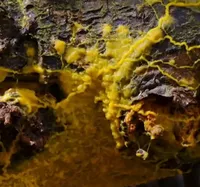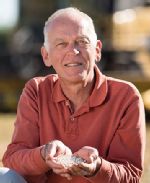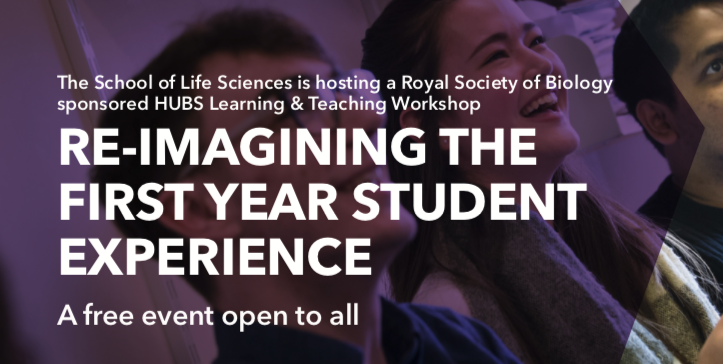Life Sciences News
See our Latest Journal Publications
Dr Tildesley talks to BBC News about plans to ease lockdown
Dr Mike Tildesley talks to BBC News about the UK government's plans to ease the lockdown, the need to maintain social distancing and the importance of the R number to stopping the spread of Covid-19.
(BBC News Channel - 10.05.2020)
Minimum energy requirements for microbial communities to live predicted
 A microbial community is a complex, dynamic system composed of hundreds of species and their interactions, they are found in oceans, soil, animal guts and plant roots. Each system feeds the Earth’s ecosystem and their own growth, as they each have their own metabolism that underpin biogeochemical cycles.
A microbial community is a complex, dynamic system composed of hundreds of species and their interactions, they are found in oceans, soil, animal guts and plant roots. Each system feeds the Earth’s ecosystem and their own growth, as they each have their own metabolism that underpin biogeochemical cycles.
Professor Orkun Soyer and colleagues have produced a thermodynamic model for simulating the dynamics of microbial communities.
UKRI fellowships awarded to Life Sciences Academics
Two academics from Life Sciences have been awarded a UKRI Future Leader Fellowship.
- Dr Byron Carpenter for his project titled: Developing a synthetic signalling system capable of the precise spatial and temporal control of protein function in living cells.
- Dr Erin Connelly for her project: Datamining medieval medical texts for modern medicines.
The fellowship scheme is awarded to the best researchers in the UK, keeping research and innovation in the UK world class.
Warwick Researchers to provide COVID-19 Intervention Modelling for East Africa (CIMEA)
 A £1m grant from the Wellcome Trust has enabled researchers to work with East African countries in their emergency preparations for COVID-19 as the pandemic spreads across Africa. Press Release
A £1m grant from the Wellcome Trust has enabled researchers to work with East African countries in their emergency preparations for COVID-19 as the pandemic spreads across Africa. Press Release
Professor James Nokes comments:
'We hope that by closely combining our efforts with in-country expertise in modelling, epidemiology, health economics and systems and vulnerability mapping we can develop models appropriate to each setting with results that will immediately feed into the policy making process to have the greatest impact.'
The Joy of Seeds
 'Seeds are little bundles of future potential'. Find out about the wonders of seeds from Dr Charlotte Allender.
'Seeds are little bundles of future potential'. Find out about the wonders of seeds from Dr Charlotte Allender.
Read the Knowledge Centre article.
Impact of marine carbon on climate change to be investigated by Warwick Scientists
 185 scientists won part of the European Research Council’s (ERC) €450 million for Europe’s long-term frontier research, one of which was Professor David Scanlan, from the School of Life Sciences.
185 scientists won part of the European Research Council’s (ERC) €450 million for Europe’s long-term frontier research, one of which was Professor David Scanlan, from the School of Life Sciences.
Researcher discusses slime mould on The One Show
 On Tuesday 31 March, Ian Hands-Portman took part in The One Show discussing the networking ability of slime mould.
On Tuesday 31 March, Ian Hands-Portman took part in The One Show discussing the networking ability of slime mould.
Watch on BBC iPlayer (item is 11 mins in).
Learn more about Slime Moulds.
Professor Andrew Easton discusses the potential development of Covid-19
Andrew Easton, Emeritus Professor of virology from the University of Warwick's School of Life Sciences, discusses the potential development of COVID-19 (coronavirus) vaccines live on anews (19 March 2020).
Dr Mike Tildesley discusses the coronavirus pandemic
Dr Mike Tildesley, Associate Professor of Life Sciences, discusses the coronavirus pandemic and what lessons can be learned from previous outbreaks of flu (TRT World Now, 18 March 2020).
Young Coventry performers use Warwick experts to help with climate science in new production
University of Warwick researchers have shared their knowledge in the development of a new play showing at the Belgrade Theatre in Coventry this week.
Dr Erin Dilger, a researcher in tropical disease, spent time with the cast and writers of the new production to help feed in and break down scientific facts about climate change and environmental issues. On Friday 13 March, Dr Dilger and other Warwick academics will join in a panel discussion after the performance.
Microbial interactions in aquatic environments to be investigated
 The microbes found in aquatic environments and their interactions will be investigated by Warwick researcher Professor Orkun Soyer, thanks to an investigator award from The Gordon and Betty Moore foundation.
The microbes found in aquatic environments and their interactions will be investigated by Warwick researcher Professor Orkun Soyer, thanks to an investigator award from The Gordon and Betty Moore foundation.
Coronavirus:Your Questions
Dr Mike Tildesley answers viewers' questions about coronavirus on the BBC News Channel (Broadcast 09.03.2020).
Arctic's Global Seed Vault to receive 1000 types of seeds from Warwick's Vegetable Genebank
Just under 1000 seed samples from different crop species including kale, carrots and cauliflower are to be deposited at the Svalbard Global Seed Vault in Arctic Norway on Tuesday 25 February 2020, from the UK Vegetable Genebank (UKVGB) at the University of Warwick Wellesbourne campus.
UK researchers aim to tackle top horticultural pests and diseases
National Institute of Agricultural Botany (NIAB) researchers are taking on four new research programmes tackling high priority pests and diseases, thanks to a new £250,000 initiative from Biotechnology and Biological Sciences Research Council (BBSRC), part of UK Research and Innovation (UKRI), and AHDB.
This pilot initiative between AHDB and BBSRC will address critical research questions associated with high priority pests and diseases that present a significant threat to UK horticultural production. The projects will run from late 2019 until March 2020 and the results will be shared with the industry when available.
Dr John Clarkson is a collaborator with NIAB Research Scientist Dr Helen Bates on a project to develop disease prediction of onion basal rot using a quantitative molecular test.
Check your pulses
 The Knowledge Centre look at research by Professor Eric Holub into new haricot bean varieties which are suitable for growing in the UK climate.
The Knowledge Centre look at research by Professor Eric Holub into new haricot bean varieties which are suitable for growing in the UK climate.
Read the article
Learning and Teaching Workshop: Re-imaging the first year student experience - 20 March 2020
SLS is hosting a FREE Royal Society of Biology sponsored HUBS learning and teaching workshop on 20 March 2020 to develop ideas and strategies to inform our understanding of what makes for the best possible undergraduate bioscience first year.

Professor Andrew Easton comments on the Coronavirus outbreak
Professor Andrew Easton talks live to Sky News about the ongoing Coronavirus outbreak:
Infectious diseases to be detected and prevented thanks to £4m grant
A £4 million grant from The National Institute for Health Research (NIHR) was awarded to researchers led by Professor Xavier Didelot, to set up a new Health Protection Research Unit (HPRU) in Genomics and Enabling Data. This unit will ensure that cutting edge genomic methods are being used to protect public health.
Warwick ranked as one of UK’s top 3 Universities for “High Flier” graduates most sought after by leading employers
Leading employers have ranked the University of Warwick as one of UK’s top three universities for “High Flier” graduates most sought after.
School of Life Sciences retains Royal Society of Biology advanced accreditation for its 4 year MBio degrees
The School of Life Sciences is proud to announce that it has been awarded another 5 years of Royal Society of Biology (RSB) advanced accreditation for its 4 year integrated Masters (MBio) degrees. Our new Neuroscience degree has gained interim accreditation which should be awarded full advanced accreditation upon graduation of the first cohort.
Advanced Degree Accreditation by the Society recognises academic excellence in the biosciences, and highlights degrees that educate the research and development leaders and innovators of the future. The Advanced Accreditation criteria require evidence that graduates from the programme meet defined sets of learning outcomes, including gaining a substantial period of research experience.
Graduates from these programmes will receive one year of free membership to the RSB at Associate level. They can also apply for membership of the RSB at member (MRSB) level after two years of practice rather than the usual three years, due to the significant research experience gained.
The RSB is the leading professional body for the biological sciences in the UK. It represents over 17,000 biologists from all areas of the life sciences, as well as over 100 organisations which make up the diverse landscape of biology in the UK and overseas. It offers members unique opportunities to engage with the life sciences and share their passion for biology.
